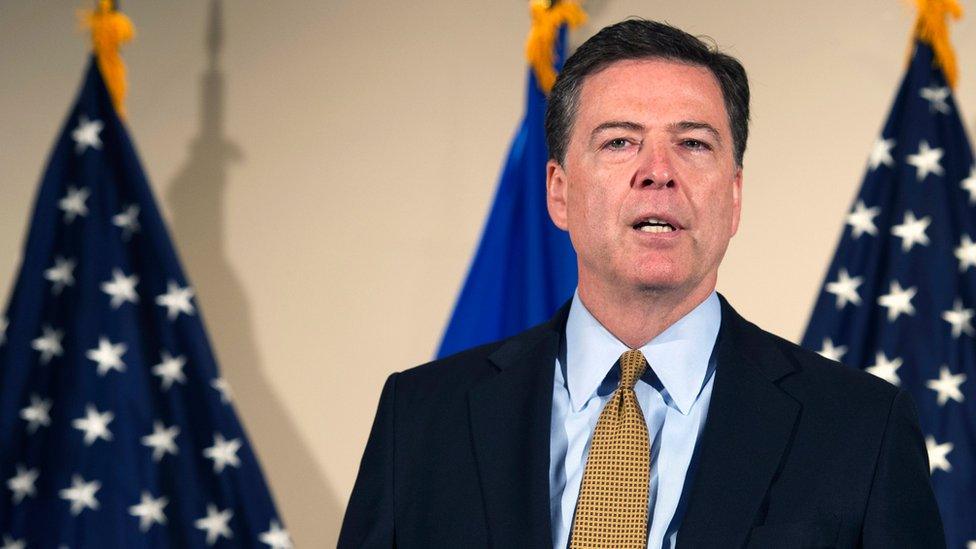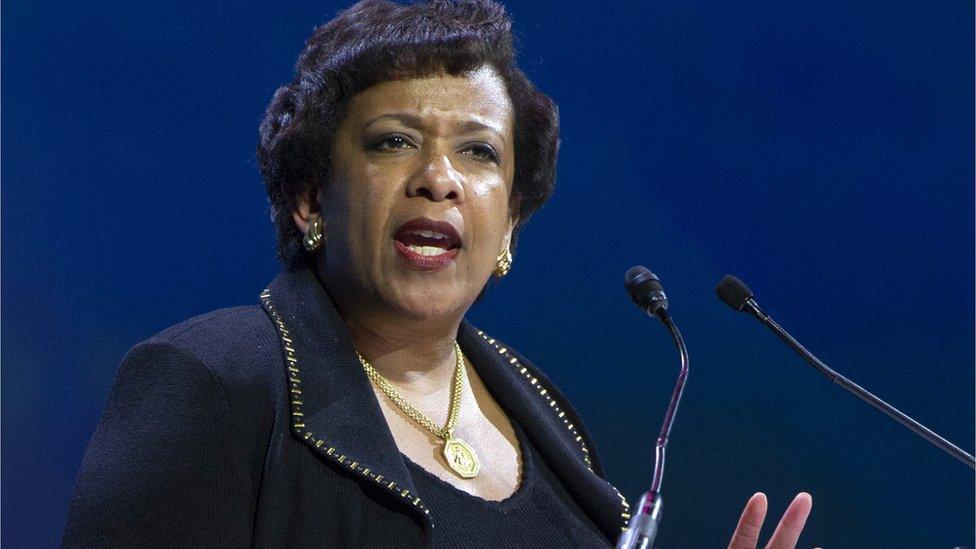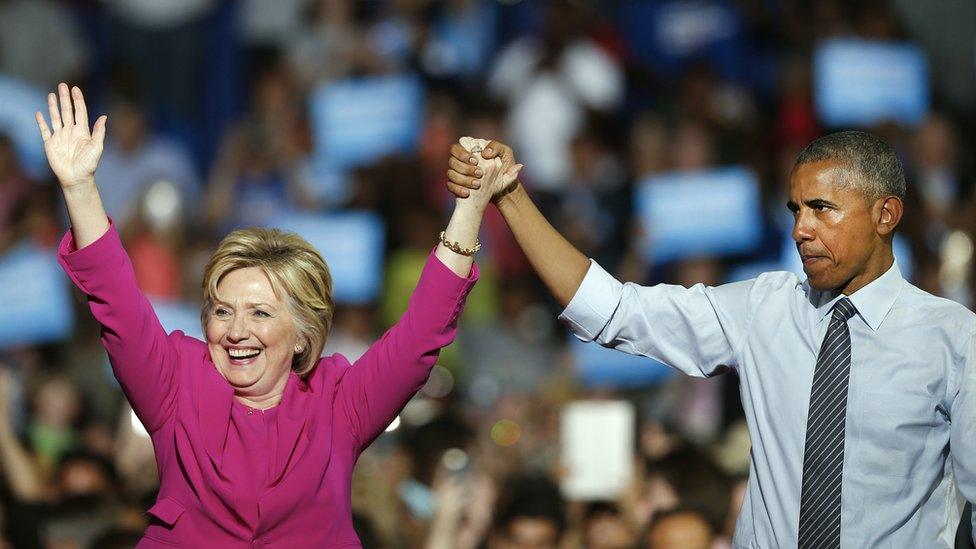FBI chief James Comey faces questions over Clinton emails
- Published

Mr Comey said Mrs Clinton and her staff were "extremely careless" with classified materials
House Republicans have called FBI Director James Comey to testify about Hillary Clinton's use of private email as secretary of state.
Mr Comey will have to explain to a House committee why he recommended the likely Democratic presidential nominee should not be prosecuted.
Over 100 classified messages were found on her email servers, the FBI said.
On Wednesday, US Attorney General Loretta Lynch confirmed that no charges would be brought.
Mrs Lynch was accused by Republican Donald Trump, who is likely to do battle with Mrs Clinton for the White House, of being bribed by the former first lady.
He said she agreed to let Mrs Clinton off the hook in return for the promise that she would keep her job if the Democrat won the election and became president.
The news that the attorney general met former President Bill Clinton, Mrs Clinton's husband, last week on the tarmac of an airport in Arizona prompted accusations by Republicans of a stitch-up.

Lynch's announcement brings the investigation to an end
On Tuesday, the FBI said Mrs Clinton and her staff were "extremely careless" in handling classified materials but there was no evidence of intentional wrongdoing.
Mr Comey's statement contradicted Mrs Clinton who previously said she had not knowingly sent or received classified material from her private email account.
He will testify on Thursday before the House Committee on Oversight and Government Reform, led by Republican Jason Chaffetz.
"The FBI's recommendation is surprising and confusing," Mr Chaffetz said.
"The fact pattern presented by Director Comey makes clear Secretary Clinton violated the law," he said. "Individuals who intentionally skirt the law must be held accountable."
A statement from Mrs Clinton's campaign team called it "yet another taxpayer-funded sham of an inquiry to try to hurt Hillary Clinton politically".

Will this hurt Clinton? - Anthony Zurcher, BBC News, Washington
It has been a common theme in the presidential campaigns of Mr Trump on the right and Bernie Sanders on the left that establishment insiders live under their own set of rules.
While average Americans are left to their fate, big bankers get bailouts, big businesses get handouts, and the elite are insulated from the consequences of their actions.
For those with this outlook, the failure to indict Hillary Clinton - or even hold her accountable in a non-criminal manner - is yet another example of the benefits that come along with high positions of power.
While Comey insisted that there was little precedent for a prosecution given that Mrs Clinton did not intentionally mishandle classified information or do so in a "grossly negligent" way, such explanations may not fly with the swath of voters currently alienated from the political process.

The email scandal has become a key political talking point, with Republicans saying Mrs Clinton thinks she is above the law.
Republican presidential hopeful Donald Trump called the decision "very unfair" and said it was proof that the system was rigged.
Mrs Clinton said she had set up the email address for reasons of convenience, because it had been easier to do everything from one device than to have several phones or tablets.
Clinton, her emails and the FBI
She later apologised for using the private email system, calling it "a mistake".
House Speaker Paul Ryan said it appears that Mrs Clinton was given preferential treatment by the FBI, and the purpose of the hearing is to try to answer a number of questions about the inquiry.
He questioned whether Mrs Clinton could receive classified briefings as a presidential candidate following the release of the FBI's findings.
House Democratic Leader Nancy Pelosi told USA TODAY that Mr Ryan's comments are "irresponsible" and "strange".
"She's going to be president of the United States and she's going to be a great president of the United States."
- Published6 November 2016
- Published6 July 2016
